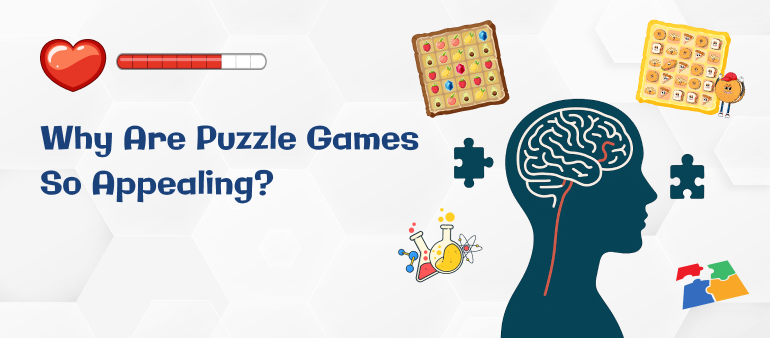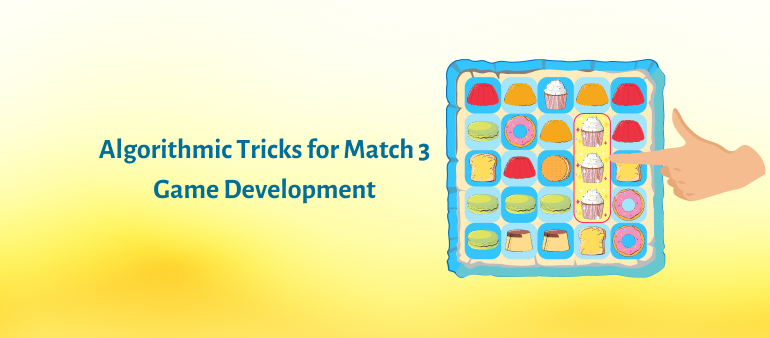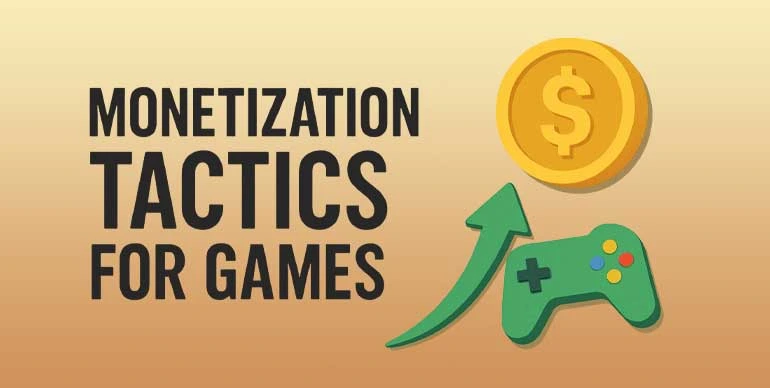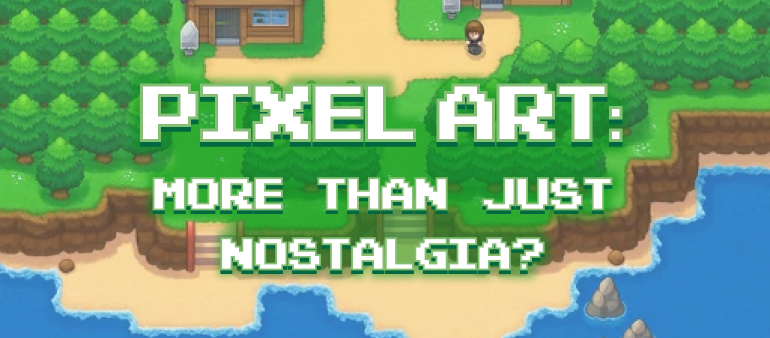It began with a cube.
Not a Rubik's cube, mind you. That came later, after I'd already sold my soul to the devil known as “just one more level.”
No, it all started with a simple mobile puzzle game innocently titled "Mind Maze: Logic Fun for All!" Spoiler: it was neither logical nor fun after Level 23, which introduced telepathic frogs and reverse gravity tiles.
Still, I played. Why?
Because I am weak, and the dopamine hits every time you hear that sweet level completion ding!?
Chef’s kiss.
Riddle me this:
I have corners but no sides, I can trap you for hours, I live on your phone, and I’ll destroy your sleep schedule. What am I?
A puzzle game.
Act I: The Trap Is Set
(How Puzzle Games Exploit Dopamine and Closure)
Science says that our brains are wired to seek closure. Puzzle games offer tiny mysteries wrapped in logic and dipped in “oh-just-five-minutes-more.” When we solve something tricky, our brain releases a nice puff of dopamine - like a tiny applause from the universe.
Except, it's not a polite applause. It's more like a mosh pit of neurotransmitters going:
“Heck yeah, queen! You connected the red square to the green triangle using only three moves and a lemon!”
This is how it begins.
You think, “Ah, this is good for my brain.”
Next thing you know, you're refusing to eat dinner until you “figure out how to rotate this L-shaped tetromino.”
Somewhere a game app developer lets out a quiet laugh.
Looking for super-clever puzzle game developers who make unputdownable games?
Act II: Puzzle Games Gaslight You
(Cognitive Dissonance & the Illusion of Mastery)
Puzzle games are, quite frankly, emotional manipulators in adorable disguises.
What you’re experiencing is a blend of cognitive dissonance and the illusion of mastery. Puzzle games trick you into believing you’re in control, only to reveal new complexities just when you think you’ve figured things out. This keeps you on a tightrope of confidence and confusion, which is exactly where the brain stays most engaged.
Match-3 games like Candy Crush Saga do this expertly. You start by effortlessly swapping candies and crushing combos. You feel clever - maybe even a little smug. But then, new elements are introduced:
- Licorice locks
- Chocolate that regenerates
- Timed bombs
- And yes… rotating jelly tiles (because why not)
Suddenly, you’re not solving anymore - you’re surviving. And the game keeps just enough success within reach that you’re convinced:
“One more try and I’ve got it.”
This balance between almost solving and barely failing creates a tension that keeps players coming back - not out of joy, but out of the persistent belief that they’re this close to cracking the system.
Act III: Cognitive Masochism
(Why We Crave Complexity and Keep Coming Back for More)
Puzzle games satisfy a deep, almost primal instinct - the need to create order out of chaos. Not because we have to, but because something in us wants to.
This is the same impulse that compels people to color-code their bookshelves, optimize their grocery lists like military operations, or solve math problems for “fun.” Puzzle players don’t just enjoy the challenge - they seek it out, and game designers are fully tuned to this logic.
Our brains are pattern-hungry machines. Present them with a problem, and they chase it like a dog after a stick:
“PROBLEM! YES! MUST SOLVE! STICK!!”
Even when the puzzle makes no logical sense and relies entirely on obscure clues like the number of birds you saw in the background of Level 6 at 3:17 PM.
Because every failure feels like a clue.
Every attempt, a hint that genius is just one step away.
It’s not about being right - it’s about getting closer.
Quick Riddle:
I come in a box but live in your head. I frustrate you but make you feel powerful. I am the silent screamer in the night. What am I?
An unsolved crossword puzzle (Also: your reflection at midnight.)
Act IV: The Loop of Doom
(Operant Conditioning & Feedback Loops)
There’s a reason puzzle games are so hard to quit. It’s the same psychological mechanism behind slot machines, Netflix binges, and that one friend who texts “u up?” at 2:14 AM: intermittent reinforcement.
Puzzle games are essentially Skinner boxes - only with friendlier colors and less existential dread. Every time you solve a puzzle, your brain gets a hit of dopamine. But here’s the trick: even when you fail, the feedback is designed to feel encouraging.
Failure? Try again.
Success? Immediate gratification and a rush of “I’m a genius.”
Outcome? A loop with no brakes.
This operant conditioning loop keeps your brain chasing rewards, especially because puzzles always feel just within reach. Even the brutally difficult ones, like that infamous level in Baba Is You where one wrong move turns you into a tree (yes, literally), feel fair in a cruel, logic-driven way.
You don’t walk away thinking the game is broken. You walk away thinking:
“The solution is in front of me. I’m just not smart enough… yet.”
That belief is powerful. It doesn’t demoralize - it motivates. The game tricks you into self-improvement under the guise of fun.
If you want free consultation with a god of game logic, this is your moment.
Final Act: Acceptance
(When the Puzzle Becomes You)
There comes a point when playing puzzle games stops being just entertainment, and starts quietly reshaping how you think.
At first, it's subtle. You spend extra time arranging icons on your desktop. You sort your grocery cart for “optimal checkout efficiency.” You begin to see traffic lanes as real-life sliding tile puzzles. It’s amusing at first-then slightly concerning.
But this mental shift has a psychological explanation.
Puzzle games train your brain to approach problems with logic, patience, and pattern recognition. Over time, your mind becomes conditioned to look for structure in chaos, solutions in disorder. This is called cognitive framing - when a repeated task changes how you interpret new situations.
Your brain learns:
“Every problem has rules. Every system has a logic. If I just try enough, I can figure it out.”
This mindset, built slowly through countless levels and retries, doesn’t stay inside the game. It leaks into real life. Everyday frustrations start to feel… solvable.
And so, without realizing it, you begin applying game logic to the real world-not because you’re obsessed, but because your brain has gotten really good at solving things.
At that point, you’ve officially entered the grid.
And maybe, just maybe, it’s a better way to live.
In Conclusion:
Puzzle games occupy a strange space in our lives - they tease us with simplicity, humble us with complexity, lure us in with logic, and occasionally leave us questioning every decision we've made since downloading the app.
They can feel like a relationship: they demand time, test our patience, and occasionally make us question our intelligence. And yet, we come back. Not out of obligation, but because something in us genuinely enjoys the process.
Through every moment of trial - whether it’s a color-matching game suddenly introducing rotating fire tiles with no explanation, or a logic puzzle that requires a whiteboard and a minor in mathematics-something remarkable happens.
We grow.
We adapt.
We think a little more clearly.
Puzzle games don’t just make us better players.
They make us better problem-solvers.
So the next time you catch yourself yelling at your screen over an absurdly difficult level, take a breath and remind yourself:
You’re not stuck.
You’re just evolving-one frustrating level at a time.
Building for Brains Like Yours
If reading this blog gave you flashbacks to your 3am puzzle battles and you’re now casually thinking, “I should make a game that breaks brains too,” you’re in luck.
Logic Simplified is a Unity game development company powered by some of the sharpest minds in the industry - think value-driven AI, brilliant game concept artists, innovative 2D/3D designers, and UI/UX designers who actually understand how players think.
Whether you're building the next viral Match-3 or an open-world logic labyrinth with lava bees (we get it), we’re here to help make it real. Apart from top puzzle game development services, clients value us for our expertise in card game apps, board game apps and other game genres.
Reach out to us at enquiry@logicsimplified.com—and let’s create games that players love, cry over, and always come back to.
 Get a Quote
Get a Quote








